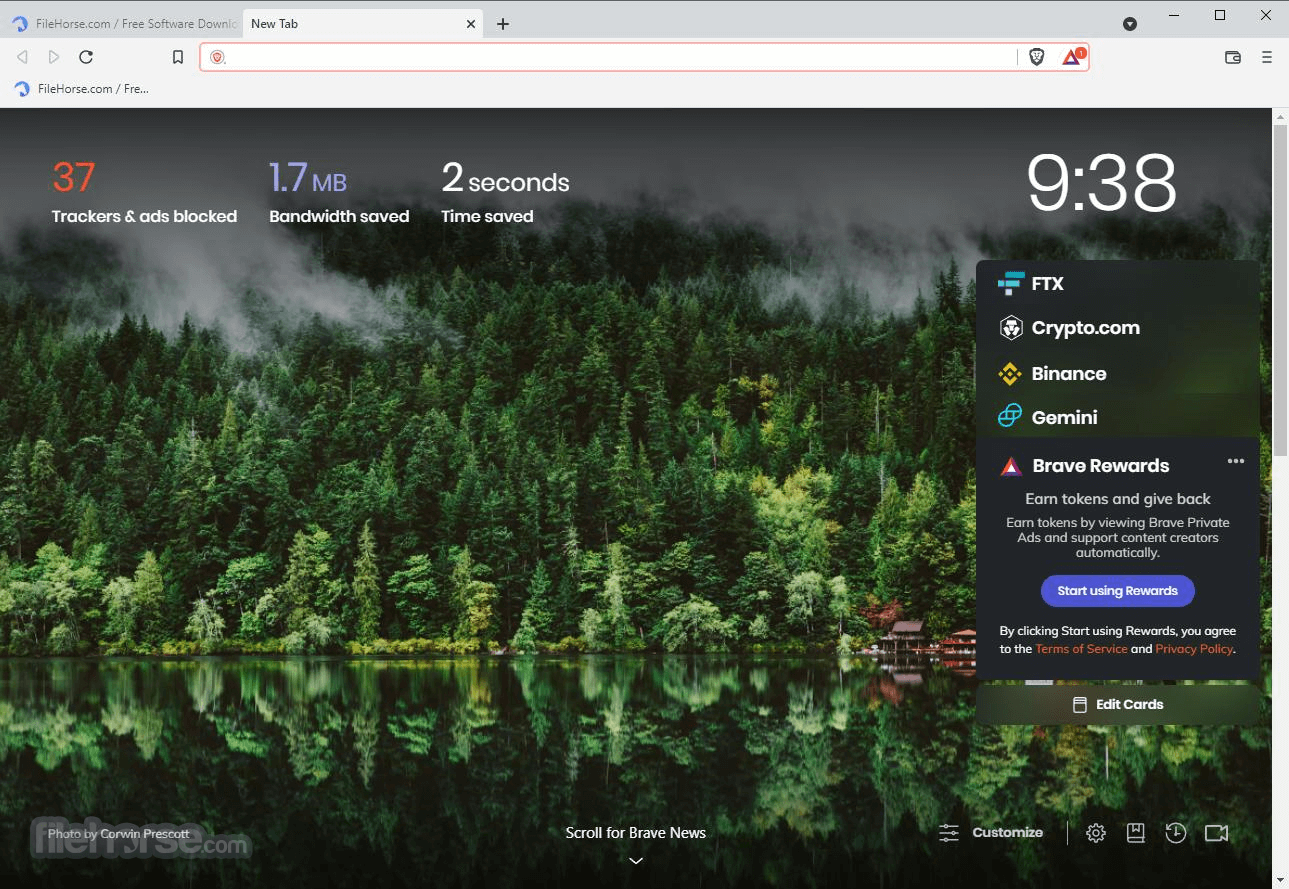

We are a Binance affiliate, we refer users via the opt-in trading widget on the new tab page, but autocomplete should not add any code … Sorry for this mistake - we are clearly not perfect, but we correct course quickly.”Įich implied that the revenue was necessary for Brave to support itself. Eich stated in a series of Twitter posts that “We made a mistake, we’re correcting: Brave default autocompletes verbatim “” in address bar to add an affiliate code. However, he also defended the practice by stating that the affiliate referral scheme had been visible in the browser’s open-source code for months. Binance, Coinbase, Ledger and Trezor were among these sites.Įich apologized for the scheme once it was discovered by users, stated that it had been fixed, and vowed that the company would not do it again. When a user entered the name or URL of certain cryptocurrency sites into the privacy browser, it would automatically redirect them to that site with Brave’s referral code appended to the URL. In addition to this being an unethical practice, Brave likely violated some of these regulations with their referral scheme. The EU’s GDPR has similar terms that require affiliate disclosure when user tracking is taking place. In the United States, the FTC requires that sites detail their relationship with affiliate partners in a clear and easily visible way.

Many countries have laws mandating that affiliates disclose their relationship with the advertiser if links of this nature are posted.


 0 kommentar(er)
0 kommentar(er)
